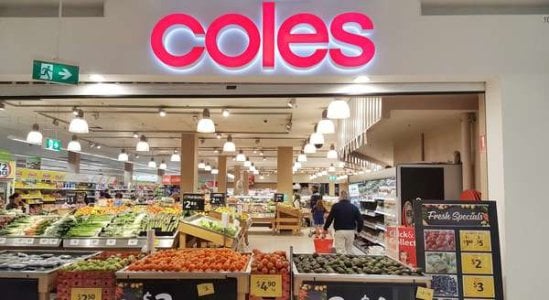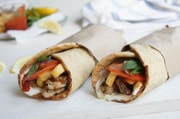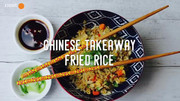Shoppers weigh in on Coles’ new eco-friendly initiative—is it worth its double price tag?
- Replies 20
As we navigate the aisles of our local supermarkets, we're often confronted with the challenge of making choices that are good for our wallets and the planet. It's a delicate balance, especially in these times when the cost of living seems to be on an ever-upward trajectory.
Coles, one of Australia's leading supermarkets, has recently introduced a new product that has sparked quite a bit of conversation among environmentally conscious shoppers.
However, before you applaud the initiative, there's a catch—the price is double the usual rate. Let's peel back the layers to understand why.
The new mandarin bags, which Coles launched as part of a trial, are primarily made of paper and boast the potential to avoid the use of 11,700 kg of soft plastic.
This is significant, considering that soft plastics are no longer recyclable in Australia and have become a notorious environmental nuisance.
The move has been cautiously welcomed by those who are weary of seeing fresh produce wrapped in layers of unnecessary plastic.

However, the bags were not without their issues.
They were not made from recycled material, and they lack the Forest Stewardship Council (FSC) certification, which assures consumers that the paper used is sourced from sustainably managed forests.
Moreover, to address customer concerns about the durability of paper bags, these new mandarin bags have a thin layer of plastic coating on the inside to prevent breakage and protect the fruit from moisture.
Despite this composite material, the Australian Packaging Covenant Organisation (APCO)—which manages the Australasian Recycling Label (ARL) scheme—said they are ‘both technically recyclable and widely accepted at kerbside’.
This means that they can be used for at least 80 per cent of the yellow bins.
‘There is a thin plastic coating inside the bag, which both helps in strengthening the integrity of the material and acts as a moisture barrier to protect the food; this amount of plastic is within fibre recyclability thresholds hence the Recyclable ARL on pack,’ the organisation explained.
The introduction of these bags comes at a time when the impact of plastic on our environment and health is being intensely scrutinised.
Plastic fragments have been found in our food, wildlife, and even human tissues and breast milk, raising concerns about potential health risks.
Supermarkets like Coles are under increasing pressure to reduce their plastic footprint, and Coles was reportedly ‘working towards’ an ambitious goal to make all of its home-brand packaging recyclable, reusable, or compostable by next year.
Reaching this goal will be a significant challenge for the company, especially considering that since the in-store REDcycle scheme collapsed in 2022, most Australians lacked a proper means to recycle their soft plastics.
This initiative followed a similar trial by Coles in Victoria and Tasmania, where paper bags were used for grapes.
It's a step in the right direction; however, sustainability experts, like Lottie Dalziel, Founder of Banish, an online eco-product store, argued that the best approach is to reduce our consumption of packaging altogether.
‘The best thing is always to reduce our consumption as much as possible, and opt for loose fruit and vegetables. As consumers we have the power, by voting with our dollar,’ she suggested.
‘By purchasing loose mandarins over those ones packaged in anything, we're showing that we want less packaging.’
Now, let's discuss the cost. The mandarins in these new paper bags are of premium quality, which is reflected in the price.
In Sydney, loose imperial mandarins typically retail for $3.50 per kg, while the Coles Unique Selection Mandarins Prepacked (800g) are priced at $6.88 per kg.
Coles explained that the fruit in the paper bags was ‘carefully curated’ and benefits from ‘enhanced growing processes and farming conditions’.
For those who can afford it, the extra cost might be justifiable for the superior taste and quality.
It's worth noting that Coles also offers the ‘I'm Perfect’ range, which includes imperfect fruit at a lower price of $4.50 per kg.
While these may not look as appealing, they are often just as tasty and nutritious as their picture-perfect counterparts.
As Coles introduces its new sustainably packaged item at a higher cost, consumers are beginning to weigh the benefits against the price.
This move aligned with a growing concern for environmental sustainability; however, it's not without its challenges.
Recent feedback from shoppers highlighted the importance of not only eco-friendly packaging but also its practicality and durability.
In light of this, a recent incident involving the quality of Coles' new paper bags sparked further discussion.
One shopper's experience shed light on the need for retailers to ensure that their sustainability efforts translate into reliable and functional products.
 Have you tried the new mandarin bags from Coles? Do you think the higher price is worth it for the environmental benefits? Share your experiences and opinions with us in the comments below.
Have you tried the new mandarin bags from Coles? Do you think the higher price is worth it for the environmental benefits? Share your experiences and opinions with us in the comments below.
Coles, one of Australia's leading supermarkets, has recently introduced a new product that has sparked quite a bit of conversation among environmentally conscious shoppers.
However, before you applaud the initiative, there's a catch—the price is double the usual rate. Let's peel back the layers to understand why.
The new mandarin bags, which Coles launched as part of a trial, are primarily made of paper and boast the potential to avoid the use of 11,700 kg of soft plastic.
This is significant, considering that soft plastics are no longer recyclable in Australia and have become a notorious environmental nuisance.
The move has been cautiously welcomed by those who are weary of seeing fresh produce wrapped in layers of unnecessary plastic.

Coles launched a new paper bag for mandarins to cut down on soft plastic packaging. Credits: Shutterstock
However, the bags were not without their issues.
They were not made from recycled material, and they lack the Forest Stewardship Council (FSC) certification, which assures consumers that the paper used is sourced from sustainably managed forests.
Moreover, to address customer concerns about the durability of paper bags, these new mandarin bags have a thin layer of plastic coating on the inside to prevent breakage and protect the fruit from moisture.
Despite this composite material, the Australian Packaging Covenant Organisation (APCO)—which manages the Australasian Recycling Label (ARL) scheme—said they are ‘both technically recyclable and widely accepted at kerbside’.
This means that they can be used for at least 80 per cent of the yellow bins.
‘There is a thin plastic coating inside the bag, which both helps in strengthening the integrity of the material and acts as a moisture barrier to protect the food; this amount of plastic is within fibre recyclability thresholds hence the Recyclable ARL on pack,’ the organisation explained.
The introduction of these bags comes at a time when the impact of plastic on our environment and health is being intensely scrutinised.
Plastic fragments have been found in our food, wildlife, and even human tissues and breast milk, raising concerns about potential health risks.
Supermarkets like Coles are under increasing pressure to reduce their plastic footprint, and Coles was reportedly ‘working towards’ an ambitious goal to make all of its home-brand packaging recyclable, reusable, or compostable by next year.
Reaching this goal will be a significant challenge for the company, especially considering that since the in-store REDcycle scheme collapsed in 2022, most Australians lacked a proper means to recycle their soft plastics.
This initiative followed a similar trial by Coles in Victoria and Tasmania, where paper bags were used for grapes.
It's a step in the right direction; however, sustainability experts, like Lottie Dalziel, Founder of Banish, an online eco-product store, argued that the best approach is to reduce our consumption of packaging altogether.
‘The best thing is always to reduce our consumption as much as possible, and opt for loose fruit and vegetables. As consumers we have the power, by voting with our dollar,’ she suggested.
‘By purchasing loose mandarins over those ones packaged in anything, we're showing that we want less packaging.’
Now, let's discuss the cost. The mandarins in these new paper bags are of premium quality, which is reflected in the price.
In Sydney, loose imperial mandarins typically retail for $3.50 per kg, while the Coles Unique Selection Mandarins Prepacked (800g) are priced at $6.88 per kg.
Coles explained that the fruit in the paper bags was ‘carefully curated’ and benefits from ‘enhanced growing processes and farming conditions’.
For those who can afford it, the extra cost might be justifiable for the superior taste and quality.
It's worth noting that Coles also offers the ‘I'm Perfect’ range, which includes imperfect fruit at a lower price of $4.50 per kg.
While these may not look as appealing, they are often just as tasty and nutritious as their picture-perfect counterparts.
As Coles introduces its new sustainably packaged item at a higher cost, consumers are beginning to weigh the benefits against the price.
This move aligned with a growing concern for environmental sustainability; however, it's not without its challenges.
Recent feedback from shoppers highlighted the importance of not only eco-friendly packaging but also its practicality and durability.
In light of this, a recent incident involving the quality of Coles' new paper bags sparked further discussion.
One shopper's experience shed light on the need for retailers to ensure that their sustainability efforts translate into reliable and functional products.
Key Takeaways
- Coles introduced a new paper bag for mandarins in an effort to reduce the use of soft plastic packaging.
- Although the new bag avoids the use of a significant amount of soft plastic, it is not fully sustainable due to its composite material, including a plastic coating, and lack of FSC certification.
- The mandarins in the paper bag were of premium quality, which justifies their higher price compared to loose mandarins, despite the new packaging.
- Coles was reportedly working on making all of its home-brand packaging recyclable, reusable, or compostable by the following year, yet the effectiveness of this initiative is in question after the REDcycle scheme's collapse.








